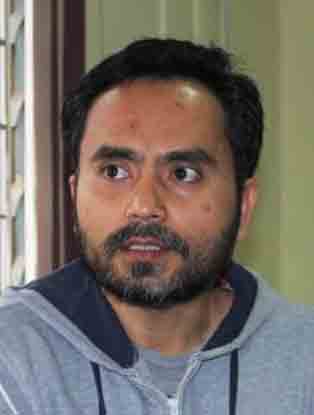Over time, I have observed that many Manipuri research scholars in Delhi and Aligarh choose doctor of philosophy or PhD topics focusing on Manipur, despite the availability of experts with global recognition in diverse topics. It is possible that the practice may be more widespread. In many cases, I believe that the selection is emotionally done but not logically. As such, this is innocuous but it may cut into the job prospect. Let me explain.
PhD goals
Any person doing PhD has two very important goals: one, to get a PhD degree; two, to get a decent job post-PhD. Additionally, it goes without saying that within the first goal an important component is to contribute to the evolving knowledge of the chosen area of research. Similarly, embedded within the second goal is to be capable of establishing himself/herself as a researcher in the chosen area that can be further researched on for at least 10-15 years down the line after getting a job. This is applicable to those who become independent researchers, including university/college teachers and scientists.
Choosing a topic
Is there a smart way to choose a topic? Yes. Simply put, the topic should fulfil the two important goals of doing PhD, i.e., getting a degree and a job. How a fresh student will know that his/her topic will fetch a job? It’s not difficult. First and foremost, the topic should yield a few international publications. For this, the topic should be popular and being hotly pursued at the time (keep in mind that it should have 10-15 years of research life down the line). Do not be limited by geographical barriers. It should have a large canvas that needs international/multi-national data/dimensions to fill in. It should appeal to a global audience. What if one pursues a local topic, say tourism prospect of the Thoubal district or higher education scenario of women in the Thoubal district? Doing research on a non-local topic with international appeal is similar to taking up a local topic and comparing it with data from other locations which are better known or documented well. For example, tourism prospect of the Thoubal district may be compared with other districts in India and abroad where gross domestic product (GDP), geographical size and terrain, population density, weather, connectivity and public amenities, are the same. In this way, a broad conclusion may be drawn which may be generally correct. Similarly, higher education scenario of the Thoubal district may be compared with other districts with comparable size, population, GDP, income, literacy, male:female ratio, and other parameters.
Needless to say, even if the topic is focused on Manipur, it is almost sure that the degree can be obtained with some sincere effort. What about the job prospect? It depends. A topic related to Manipur may or may not fetch a job outside Manipur, thereby limiting the job prospect. The problem is serious in the case of art, culture, languages and social sciences (hereon, humanities). Science students usually do not have such issues as the tools and techniques, literature and medium (language used) are almost universal even if the topic is local. Nevertheless, the following points are very important for all PhD candidates.
Contribution to the literature
From the above paragraphs, it is clear that studying a local topic with a myopic scope is antithetical to PhD. Then, who will study or do research on local topics? Well, firstly, the researchers who are in Manipur are more responsible to work on local topics compared to Delhi-based researchers. Secondly, local topics can be explored much better once the candidate is established as a researcher after the PhD degree is obtained. The researcher can even publish in international journals of repute for better visibility. Such a publication will have more weightage and acceptability. For example, an established historian with 10-15 years of research experience, publishes a research paper on the history of Kangla covering the period, say, 33 CE to 10th century CE. It is obvious that this research paper will be received better by readers than a paper on the same topic written by a PhD candidate as part of their doctoral work. The established historian will not only consult/refer to the available sources in Manipur but also strive to refer to relevant sources available in neighbouring states (Assam, Tripura, Mizoram, Nagaland) and countries (Myanmar, Bangladesh and parts of Southeast Asia) to carry out a comprehensive study to be authentic and acceptable. The same scale of research may be difficult for a PhD candidate because of the lack of expertise and inability to comprehend the overall implications of an in-depth and systematic research work.
A recognised researcher is the one who has contributed a significant piece of knowledge in the evolving/accumulating wealth of knowledge pertaining to the topic of research. Whether a publication or a thesis has contributed significantly to the existing knowledge (or filled up a knowledge gap) or simply generated some data without much value, will be decided by the citations the international publication (paper) or thesis receives after its publication. A significant contribution should be cited by at least 50 other authors/papers/theses in five-ten years of its publication. A highly significant paper (i.e., first report of a breakthrough) may get more than 50 citations in the first year itself.
Getting a job
Getting a job today is easy if a few decent international publications are accomplished from the thesis work. From a thesis on a local topic, getting an international publication is challenging as decent journals accept only those articles with international appeal and will be read by a global audience. In order to explore the topic to publish a decent international publication, one needs a foolproof methodology, a lot of travelling to collect data, to work with heavy data and latest analytical tools/techniques, collect a lot of literature/sources, etc., in the case of humanities. In the case of science, travelling for collecting data may or may not be needed. However, for a PhD student, despite the supervisor’s guidance, it is difficult to make the cut because he/she is not a trained researcher and there is no surety that all guidance of the supervisor will be understood in the right spirit, given that the student may not be equipped enough to take the guidance in his/her stride. In fact, PhD is the training after which the candidate will be considered a successful researcher. Further, reviewers and international journals also consider the past works of the author before accepting a paper for publication. On this count also, the PhD student is short as most of them write single-author papers in humanities. Therefore, he/she is at odds with getting an international publication. Taken together, the doctorate or PhD holder who worked on a topic pertaining to Manipur will most likely get a job in a college, university, research institute, or NGOs in Manipur. As the number of doctorates is increasing and the jobs are few and far between, getting a job will become more and more difficult and hence, the doctorate will be disappointed and may demotivate others from doing quality research. This is not much of a problem at present but likely to be magnified in days to come.
Philosophy in PhD
Coming back to the question of local topic, the PhD candidate should generate some knowledge that can be universal wisdom or philosophy (remember, doctor of philosophy or PhD is the name of the degree). From the research topic, tourism prospects of the Thoubal district, what universal wisdom or philosophy one can derive with regard to tourism or any other aspect? Further, can one study the same topic for 10-15 years down the line with evolution in knowledge? Similarly, what philosophical understandings can be obtained studying the higher education scenario of women in the Thoubal district? Does it have 10-15 years of research life? Philosophy or philosophical understanding, in the context of a PhD thesis, may be the generally correct/acceptable conclusions drawn which are applicable to many comparable scenarios. If this aspect is missing, then the PhD thesis will be just like a research report written by an investigative journalist. The piece may be interesting and filled with facts but not deserving a doctor of philosophy degree. Such researches are routinely done by novelists, scriptwriters, and many others.
Therefore, PhD candidates should not decide a topic based on emotional attachment but by keeping in mind the general goals of doing PhD.












